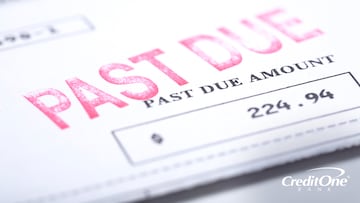What Happens When You Make a Late Credit Card Payment?
July 09, 2025
A late credit card payment can cause frustration and bring consequences. Let’s explore the potential fees, interest rate increases, and other effects of being late.

Introduction
If you’ve made a late credit card payment recently, you’re not alone. A 2024 survey found that 21% of Americans incurred a late fee from a credit card issuer in the preceding 12 months.
Maybe you had a forgetful moment, a busy week or an unexpected financial hardship. But what now? Let’s explore what can happen after making a late credit card payment.
How a Late Credit Card Payment Can Affect You
Before we get into the effects of a late credit card payment, let’s clear up some terms: A credit card payment is considered late if you don’t pay at least the minimum amount due by the due date. It’s considered missed if you don’t pay for 30 days or more.
Late payments have immediate consequences. Once they become missed payments, there can be long-term ones, too.
You could be charged a late fee
If you don’t pay the minimum amount due by the due date on your statement, your credit card issuer will typically charge a late fee.
By current federal law, and as of June 2025, this fee can be up to $30 after your first late payment and up to $41 if you pay late more than once in six billing cycles. So, if you pay your bill late just three times in one year, you could run up over $100 in late fees.
You could be charged more interest
In addition to the late fee, you’ll also have to pay interest on your credit card balance. When you don’t pay your balance in full by the due date, the outstanding balance starts accruing interest.
Your card issuer may also raise your interest rate (or APR) after a missed payment. This is called a penalty APR.
Policies vary for each card issuer, but this may trigger after 30 days past due. And not only can the penalty APR affect your existing balance, but it could also stay on your account and apply to future purchases for at least six months. That means you’ll pay even more interest if you carry a balance from month to month.
Your credit score could take a hit
If you aren’t careful, one late payment can ultimately lead down the path to a lower credit score.
Creditors don’t typically report payments that are under 30 days late to the major credit bureaus. But after that, the payment is considered missed and lenders will likely report it to the credit bureaus.
Since your payment history is the most important factor in your credit score, missing a payment can lower your credit score significantly. The missed payment will stay on your credit report for up to seven years, but its impact should diminish over time.
Finally, if your account remains past due for an extended length of time — four months and six months are common benchmarks — it will likely be closed, charged off and reported to the credit bureaus, majorly hurting your credit score.
Ways To Avoid Late Credit Card Payments
Late payments can happen to anyone, but it’s pretty easy to set up a few tools to help you pay on time, every time.
Set up AutoPay
Many credit card companies allow you to link your checking account and set up automatic payments each month. You’ll often have several options, like the minimum due, the full balance or a fixed amount that’s more than the minimum.
Sign up for payment reminders and notifications
Many issuers can also send text, email or app alerts when your due date is approaching, which can be an effective reminder to pay the bill. And if you’d like confirmation that your payment posted, that’s typically a notification option too.
Change your payment due date
Did you know that you aren’t stuck with your credit card’s specific payment due date? Card issuers usually allow you to change your due date by contacting them or using their mobile app or website. This can be helpful if your due date falls close to other bills or long after payday.
What To Do if You’re Struggling To Make Your Card Payments
If you’re regularly late or outright missing payments due to financial difficulties, your credit card company may be willing to work with you on payment arrangements.
If you need extra support, consider seeking out a reputable, nonprofit credit counseling organization. A counselor can help you see the big picture and develop a plan to help overcome your financial challenges.
Bottom Line
Dealing with a late credit card payment can be frustrating, but it isn’t the end of the world. Especially if you get that account current as soon as you can.
But if it happens regularly — or if you begin missing payments entirely — there can be short- and long-term effects on your credit.
Now that you understand the ins and outs of late credit payments, you know what to do to bounce back, mitigate the damage or, hopefully, avoid the situation entirely.
Jorge Labrador writes about credit-related topics that often come with a lot of questions, like pre-approvals, credit scores, credit building, and trending advice on social media. He's previously covered healthcare, travel, entertainment and more for nearly two decades. He likes to unwind by painting plastic fantasy miniatures, making a fancy cup of coffee or color-coding his budgeting app (again).




